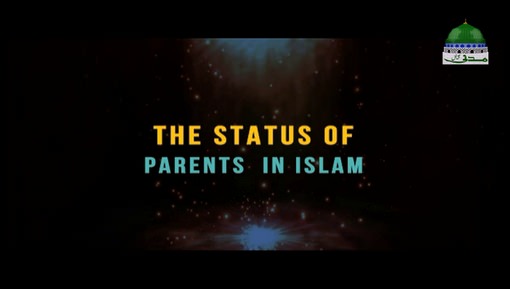
Blessed Islamic scholars have not only given us guidance on other matters of life, but they have also given us guidance on the rights of children and their upbringing from time to time by providing ‘Points about Upbringing’. Though many books with brief and detailed information about the rights of children and their upbringing have been written, but a booklet with brief information, part of Fatawa Razawiyyah, namely ‘مَشْعَلَةُ الْاِرْشَادْ فِی حُقُوْقِ الْاَوْلَاد’[1] authored by Imam of Ahl-us-Sunnah, A’la Hadrat Imam Ahmad Raza Khan رَحْمَةُ اللّٰەِ عَلَيْه, is the essence of blessed Ahadees. Following are some selective points for the parents about their children derived from this glorious booklet:
1 Right after the birth of a baby, give Azan in the right ear four times and Iqamat thrice in the left ear of the baby so that the baby remains safe from satanic influence and epilepsy.
2 Request a blessed scholar or a pious person to give Ghutti [first food] to the newly born baby. The method of it is that the person who is going to give Ghutti should chew a date or any other sweet item and then put it into the mouth of the baby and apply it over the palate of the baby.
3 If it is not possible to perform ‘Aqeeqah on the 7th day of the birth, perform it either on the 14th day or the 21st day of the birth of the baby.
4 Get the head of the new born baby shaved.
5 Give charity in silver equal to the weight of the hair.
6 Apply saffron to the head of the baby.
7 Give good name to a child.
8 Give in a proper manner what the child asks for.
9 Avoid addressing your child with a bad name even out of love because once a name becomes popular, it becomes difficult to quit it.
10 Treat these Allah’s trusts with love and affection.
11 Do not make false promises when coaxing your child because it is not permissible to even make the false promises to a child. Make promises to them if you intend to fulfil it.
12 If there are few children, distribute things amongst them equally. Do not prefer one child to the other one.
13 When you return from a travel, do bring some gifts for them.
14 When they start speaking, teach them to recite “Allah, Allah” and complete ‘Kalimah Tayyibah’ ‘لَا اِلٰەَ اِلَّا اللّٰەُ مُحمَّدٌ رَّسُوْلُ اللّٰە’.
15 When children start behaving in a sensible manner, start teaching them how to stand, sit, eat, drink, etc.
16 Urge your children to keep reciting Glorious Quran even after they have completed it.
17 Teach your children Islamic beliefs as a child is naturally born for accepting ‘Islam’ and truth. Anything that is told to a child in the early age remains firm.
18 Inculcate the devotion and reverence for the Beloved Rasool صَلَّى اللّٰەُ عَلَيْهِ وَاٰلِهٖ وَسَلَّم into the hearts of your children, for these are the essence and absolute Iman.
19 Provide your children with the devotion and glory of the pious predecessors because these matters are the source of the safety of Iman.
20 Start asking your children verbally to offer Salah when they become 7 years old.
21 Be gentle to your children while teaching them.
22 On a suitable occasion, make your children understand but do not curse them because this might lead to more aggravation.
23 During the study period [schooling, etc.], fix a playtime for children so that they do not get bored.
24 Do not let your children have bad company at all because bad company is more dangerous than a venomous snake.
25 Do not ask him to do any such work which he might refuse to do in a commanding tone but rather ask him to do it with gentleness in a manner as if you are suggesting him so that he stays safe from the sin of disobedience. (Fatawa Razawiyyah, vol. 24, pp. 451 to 455, summarised)
May Allah عَزَّوَجَلَّ enable us to continue to bring our children up according to the blessed teachings of Imam of Ahl-us-Sunnah رَحْمَةُ اللّٰەِ عَلَيْه.
اٰمِيۡن بِجَاهِ النَّبِيِّ الۡاَمِيۡن صَلَّى اللّٰهُ عَلَيۡهِ وَاٰلِهٖ وَسَلَّم
[1] This booklet with ‘annotation and reference’, namely ‘Awlad kay Huqooq’ has been published by Maktaba-tul-Madinah, the publishing department of Dawat-e-Islami.


















Comments